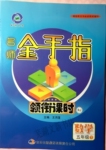题目内容
One day I visited an art museum while waiting for my husband to finish a business meeting . I was expecting a quiet of the splendid artwork.
A young viewing the paintings ahead of me nonstop between themselves. I watched them a moment and decided the lady was doing all the talking. I admired the man’s
for putting up with her stream of words. by their noise, I moved on.
I met them several times as I moved the various rooms of art, Each time I heard her continuous flow of words, I moved away .
I was standing at the counter of the museum gift shop making a when the couple approached the . Before they left, the man into his pocket and pulled out a white object. He 47 it into a long stick and then his way into the coatroom to get his wife’s jacket.
“He′s a man.” The clerk at the counter said. “Most of us would give up if we were blinded at such a young age, During his recovery, he made a promise his life wouldn’t change. So, as before, he and his wife come in there is a new art show.”
“But what does he get out of the art?” I asked. “He can’t see.”
“Can’t see? You’re . He sees a lot, More than you and I do,” the clerk said, “His wife each painting so he can see it in his head.”
I learned something about patience, and love that day. I saw the patience of a young wife describing paintings to a person without and the courage of a husband who would not blindness to change his life. And I saw the love shared by two people as I watched this couple walk away, their arms intertwined.
1.A. view B. touch C. wander D. scenery
2.A. lady B. man C. couple D. clerk
3.A. yelled B. argued C. screamed D. chatted
4.A. attempt B. patience C. wisdom D. independence
5.A. vivid B. constant C. casual D. exciting
6.A. Adopted B. Adapted C. Conducted D. Disturbed
7.A. towards B. to C. through D. from
8.A. anxiously B. slowly C. quickly D. sensibly
9.A. comment B. decision C. purchaseD. profit
10.A. entrance B. queue C. front D. exit
11.A. plugged B. reached C. held D. bent
12.A. lengthened B. made C. brought D. broadened
13.A. led B. found C. forced D. tapped
14.A. brave B. rough C. smart D. generous
15.A. wherever B. whatever C. whenever D. whichever
16.A. wrong B. silly C. equal D. unique
17.A.describes B. draws C. shows D. decorates
18.A. kindness B. courage C. enthusiasm D. pride
19.A. support B. expectation C. sight D. confidence
20.A. allow B. hope C. get D. cause
1.A
2.C
3.D
4.B
5.B
6.D
7.C
8.C
9.C
10.D
11.B
12.A
13.D
14.A
15.C
16.A
17.A
18.B
19.C
20.A
【解析】
试题分析:在本文中,通过作者的讲述让我们感受到了一位年轻妻子和盲人丈夫之间真挚的爱情,同时也感受到了他们所拥有的那种不被生活磨难所压倒的勇气。即使丈夫失明了,但是他们依然沿着自己的生活轨迹前行着,依然享受着生活。
1. A. 观赏,观看;B. 接触;C. 漫步; D. 风景。从上下文可知作者在参观艺术博物馆,由此推断作者希望能好好的欣赏这些艺术品,所以答案选A。
2.A. 女士;B.男人;C. 夫妇 ; D. 办事员。从第四段when the couple approached 以及下文职员的话he and his wife come in可知这是一对年轻夫妇,所以C选项正确。
3.A.叫嚷;B. 争吵;C.尖叫;D. 聊天。根据下文 …..doing all the talking可知他们是在不断的交谈,所以答案选D。
4.A. 尝试;B. 耐心;C. 智慧; D.独立。根据putting up with以及最后作者的感慨I learned something about patience,可知作者起初认为丈夫能忍受妻子的唠叨,佩服丈夫的耐心,而最后却意识到这是妻子在耐心的讲解每件艺术品,所以答案选B。
5.A.生动的;B. 不停的;C. 随便的; D. 激动的。根据上文….nonstop between themselves和下文中 her continuous flow of words,可知妻子在不停说话,所以判断B选项正确。
6. D动词辨析。A. 采用,收养;B. 适应,改编;C. 试试,执行;D. 打扰。根据上文内容可知作者希望能够安安静静的观赏一下艺术展,但是碰到这对总是交谈的夫妇,所以她觉得受到了干扰,故D选项正确。
7.A. 朝,向;B.朝,向;C.通过;D. 从。由情理可知作者是在一个展室一个展室的走动观赏,所以用through表示“穿过”。
8.A. 忧虑地 ;B. 缓慢地; C. 迅速地;D. 明显地;容易感知地。由上文的讲述可知作者感觉这对年轻夫妇影响了她观赏这些艺术品,甚至影响到了她的心情,所以见到他们后她是迅速地避开。故答案选C。
9.A.评论;B.决定;C. 购买;D. 利润。make a comment“作出评论” ;make a decision“作出决定” ; make a purchase“购买”; make a profit “盈利”根据the counter of the museum gift shop可以推测作者是在买东西的时候又碰到了这对年轻夫妇。
10.A.入口;B. 队;C.前面;D. 出口。从下文丈夫去衣帽间拿衣服可知他们要离开,所以D选项正确。
11.B动词辨析。A. 插入;塞住;B. 伸手(去够),到达;C抓住.; D.弯腰。从下文可知年轻男子在口袋里拿出了一个白色物件,所以此处选B,意思是“他把手伸进口袋”。
12.A动词辨析。A. 变长;B.制造;C. 带来;D. 加宽。从语境可以推测这是盲人可以伸缩的探路用的拐杖,所以答案选A。
13.D动词辨析。A. 带领;B.发现,找到;C. 强迫;D. 敲击。根据上文可知他们要离开,由此判断盲人是用拐杖探路去衣帽间,find one’s way“找到去某地的路”,故D选项正确。
14.A形容词辨析。A. 勇敢的;B. 粗鲁的; C.聪明的; D. 慷慨的。由下文职员所说的话“大多数人处于他的这种状况的话都会放弃”以及作者后面的赞赏可以推断职员是在夸奖年轻人的勇敢,所以选A。
15.A. 无论哪儿;B. 无论什么;C.无论何时;D. 无论哪个。从情理可知他们应该是有展览的时候来看展览,所以填C。
16.A. 错误的;B. 傻的;C. 平等的;D. 独特的。通过下文职员反驳作者的话可知职员是认为作者说错了,所以答案选A。
17.A动词辨析。A. 描述;B. 画画;C. 展示;D. 装饰。从下文I saw the patience of a young wife describing paintings可知年轻的妻子把每件作品都描述给丈夫听,所以答案选A。
18.B名词辨析。A. 善良 ;B. 勇气;C. 热情;D. 自豪。从下文the courage of a husband可以判断作者感受到了他们生活的勇气,答案选B。
19.C名词辨析。A. 支持 B. 期待C. 视觉,视力 D. 信心。根据上文内容可知年轻的丈夫是个盲人,是没有视力的,故答案选C。
20.A动词辨析。A. 允许;B.希望;C. 得到;D. 造成。从文章内容可知面对生活的磨难年轻人没有一蹶不振,没有让磨难改变自己的生活,而是继续享受着生活中的美好,所以答案选A。
考点:考查故事类短文。

 名师金手指领衔课时系列答案
名师金手指领衔课时系列答案